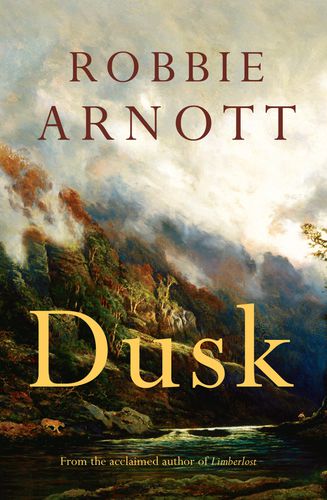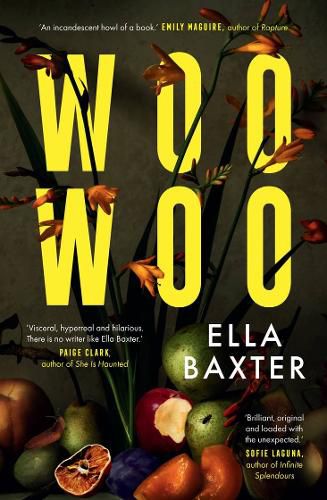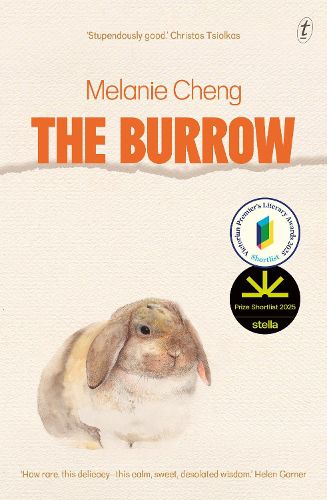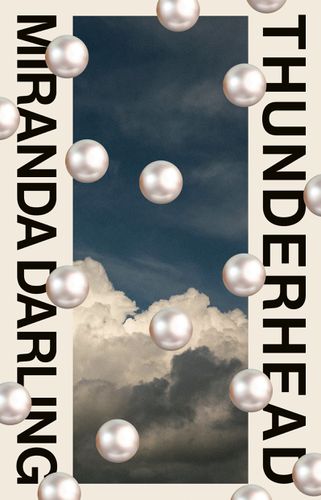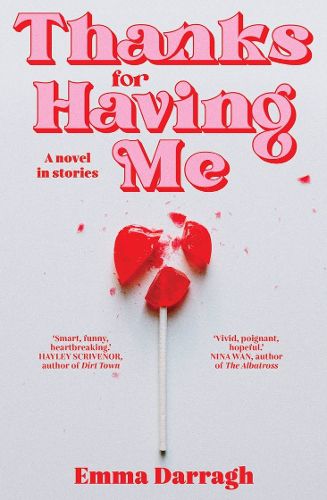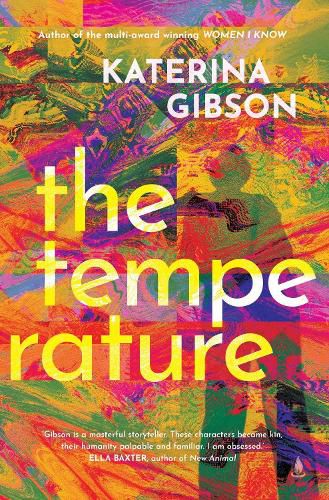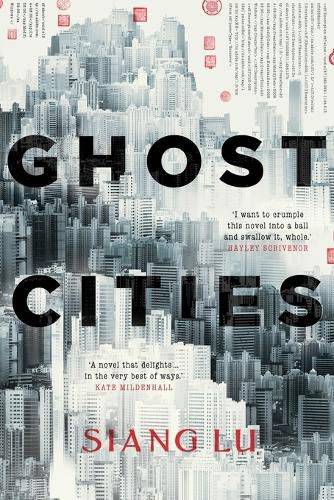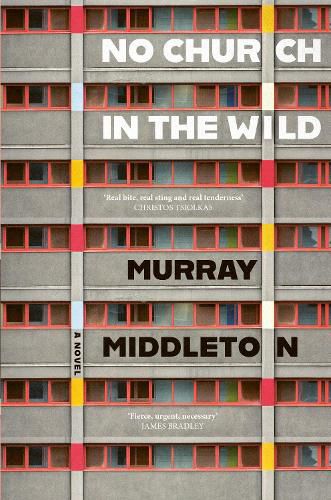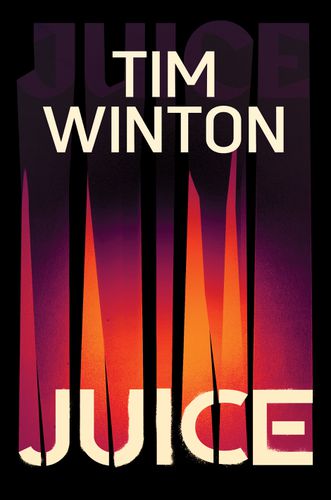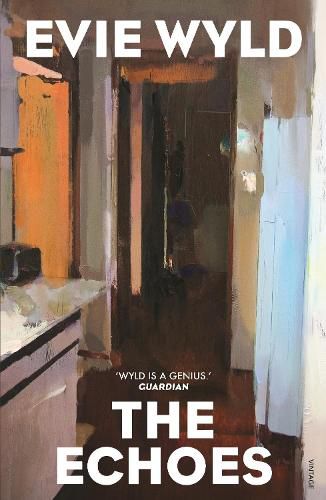Every year our staff vote for their favourite books of the year. Here are the best Australian fiction books of 2024, as voted by Readings' staff!
The titles are displayed alphabetically by author.
Dusk by Robbie Arnott
‘Robbie Arnott, author of Limberlost, winner of The Age Fiction Book of the Year 2023, returns with another stunning novel, Dusk, which deserves as much hype as all his other shortlisted and award-winning books.
Set in 19th century Tasmania, a puma the locals have called ‘Dusk’ is killing shepherds, and all those who attempt to stop the vicious deaths. When twins Iris and Floyd hear of a large bounty that’s been placed on Dusk, they seize their chance to claim it themselves. They have no work, money, or place to call home, but this bounty could change everything. However, they’re not the only ones who have heard of the sizeable reward for the puma’s death, and soon a race is on to survive – the puma, the harsh highlands and those within them.’
– This is an edited quote from Aurelia Orr’s review for Readings Monthly
Woo Woo by Ella Baxter
‘Woo Woo is about Sabine, a visual artist whose important – possibly career-making – show is just about to open. She lives with her emotional support person and romantic partner, Constantine, a successful chef, who is often enrolled to help Sabine create her art-world persona, which needs constant online maintenance. Sabine is in a state of perpetual anxiety about her creative output, and the line between her artistic identity and her actual self has all but dissolved ... In the background, something more sinister lurks: Sabine has a stalker, and this shadowy figure, Rembrandt Man, who seems to be there always but just out of view, is feeding Sabine’s growing paranoia.
... this book is so well-written, you can give yourself over to the words and engage fully with Baxter’s original thinking, and feel the feelings she is exploring. Woo Woo is an outstanding book, one we’ll remember from 2024.’
– This is an edited quote from Alison Huber’s review for Readings Monthly
The Burrow by Melanie Cheng
‘This beautifully contained and elegant novel resulted in me gasping for air. Remembering the days of Melbourne’s lockdown is not easy, and this visceral tale of one family – one bubble – will knock you over in the same way Helen Garner does with her writing ...
The emotion of time is important in this family drama. It is a novel about all the ways we hurt family members and all the secrets we keep from one another out of love. Jin and his wife, an author, Amy, purchase a rabbit for their daughter, Lucie, to appease her. A gesture of optimism, surely. Soon after, Amy’s mother falls and she needs to live with them while she recovers. Their lives are abruptly compacted. Their days are long, fraught with intense grief and fear and the wonder of the strange companion creature – a prey animal – that they have brought into their lives.’
– This is an edited quote from Chris Gordon’s review for Readings Monthly
Thunderhead by Miranda Darling
‘Winona Dalloway wakes up at 5am to steal a sense of freedom. From the outside, she seems an ordinary suburban mother/wife/person, but inside the thunder is growing louder and louder. Chaos stirs and swells into the corners of her mind, revealing intimate truths that one hopes would never surface. It felt a privilege to be let inside Winona’s world on this significant day – a day that could change the entire course of her life ... Hints of Sylvia Plath and Shirley Jackson seep off the page as Winona’s escapist narratives and inside jokes guide us – willingly – into the eye of a storm.
... Sharp, complex, and painfully relatable, Thunderhead is a firecracker of a story that lives up to its title. Darling’s dry wit and stark prose swallowed me whole, and I know I’ll be ruminating over it for a while to come.’
– This is an edited quote from Lucy Fleming’s review for Readings Monthly
Thanks for Having Me by Emma Darragh
‘Emma Darragh’s debut follows three women from the same working-class community in Wollongong. Maryanne, a mother in the 1970s, tries to be everything for her two daughters and husband. She works as a nurse, makes lunches for the kids, plus dinner when she gets home ... But when her two daughters are adolescents in the 1990s, she barely recognises her life, and leaves.
Vivian also finds herself in a situation where her family suddenly feels unrecognisable ... At 23, Vivian is partnered and pregnant; she’s hoping motherhood will give her some direction. But the repetition of sleepless nights and painful breastfeeding disheartens her. Increasingly distant from her husband, she leaves when her daughter is primary school aged.
... This novel is for readers who enjoy writers who make the personal enjoyably political. It’s a wonderful, thought-provoking read.’
– This is an edited quote from Annie Condon’s review for Readings Monthly
The Temperature by Katerina Gibson
‘The Temperature introduces six seemingly unrelated characters, and slowly but surely and with expert precision Gibson reveals how their lives are intertwined. This is life: the things we do, the reverberations of those actions, the places we make – all connected to each other and the Earth, to the past and the future, not atomised, singular and ahistorical as we are led to believe in the neoliberal discourse of our age. While this narrative structure is not a new approach in storytelling, what is outstanding is Gibson’s careful attention to the voices of each of these characters, and the political, generational and gendered identities each of them embodies. Like a writerly chameleon, she changes her style in each section, so the reader empathises with these people, inhabiting each of them as they make their way in the world as we know it.’
– This is an edited quote from Alison Huber’s review for Readings Monthly
Ghost Cities by Siang Lu
‘Siang Lu’s protagonist, Xiang Lu, is fired from his job as a Mandarin–English translator at Sydney’s Chinese Consulate on account of his not being able to speak Mandarin. This, the opening joke of the novel, becomes more and more serious with each retelling. There are two narratives at play throughout – that of Xiang, in his strange new employment as an internet phenomenon, and a tale of emperors and betrayals in China’s distant past. It does not take long before the characters of these seemingly disparate tales begin to reflect and collapse upon one another.
There are a great many moments of humour here ... [but for] all the verve of Lu’s satire, the glimpses of what lies beneath farce were what made this novel truly memorable.’
– This is an edited quote from Molly Smith’s review for Readings Monthly
No Church in the Wild by Murray Middleton
‘This novel is a multi-perspectival account of a multicultural community in Melbourne’s inner west. Its key characters are students, teachers, and police, whose lives intersect in a school near housing commission towers, and at training for a planned trip to the Kokoda Trail, which has been imagined as a community-building exercise to bridge the gaps between all these stakeholders. Each character is unique with a complex backstory and life off the page, and they are so far from types that they feel just like real people. The dialogue is profane and vernacular, and brings plenty of energy and excitement to the reading experience: it feels like the theatre of life, and this veracity is testament to the author’s research and lived experience in the communities he represents here.
At its core, this book is a big-thinking novel with its eye on the detail.’
– This is an edited quote from Alison Huber’s review for Readings Monthly
Juice by Tim Winton
‘Somewhere in Western Australia, a man and a young child in his care arrive at an old mine site. They have been travelling through a landscape devastated by climate change: searing temperatures make it impossible to travel by day. This mine is their best chance of seeking some respite from the weather, but someone has beaten them to it. The man sees he has one chance of survival: to tell his story.
This is the set up for Tim Winton’s blistering new novel, Juice. The narrator is born into a forsaken world, living on a small farm with his hard-bitten mother. Theirs is an existence of subsistence living, their survival dependent on resilience, ingenuity and a fair amount of luck ... Although, in the face of this adversity, they are not downtrodden. They’ve come to terms with their fate.
That is until our narrator comes of age and he is shown how the world became this way. How it was transformed by an age of greed, lies and wilful destruction ... ’
– This is an edited quote from Joe Rubbo’s review for Readings Monthly
The Echoes by Evie Wyld
‘Hannah moves from her rural Australian childhood to London in her 20s, finding an apartment on the same street her grandmother migrated from almost a century beforehand. In London, she takes up and quits writing, meets her boyfriend Max and loses her boyfriend Max, gets pregnant and ends the pregnancy. Echo and response, echo and response. Although Max dies, he never leaves their apartment – unbeknownst to Hannah, his ghost remains, watching her and narrating her story while still not understanding her. Hannah refuses to be understood – by her mum, whose letters she won’t return; by Max; by the reader ... In Wyld’s world, you do not have to be dead to be a ghost, to be an echo. Wyld’s genius is inimitable, heralding a new era of Australian Gothic.’
– This is an edited quote from Teddy Peak’s review for Readings Monthly


